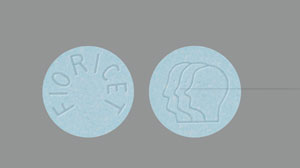According to the 2018 National Survey on Drug Use and Health (NSDUH), an estimated 6.4 million people ages 12 or older misused prescription tranquilizers, including barbiturates like Fioricet, in the past year.
Although the risk of developing addiction to Fioricet is generally low, particularly when adhering to the prescribed usage, it is not impossible. The likelihood of addiction significantly escalates when an individual becomes physically reliant on Fioricet and builds a tolerance. When this occurs, a higher dosage becomes necessary to achieve relief from headaches. Consistently increasing the dose or frequency of Fioricet intake can lead to addiction.
Ingesting large quantities of Fioricet can also induce a euphoric sensation akin to being intoxicated, which may serve as an incentive for misuse. Some individuals employ Fioricet recreationally by consuming substantial amounts to attain this high or by combining it with opioids or prescription pain relievers to amplify its effects.
Abusing Fioricet for recreational purposes or using it contrary to its prescribed regimen can result in severe repercussions, including tolerance, dependency, addiction, and withdrawal symptoms. Once addiction takes hold, breaking free from its grip can be an arduous challenge.

Fioricet is a medication that contains butalbital (a barbiturate), acetaminophen (a pain reliever and fever reducer), and caffeine (a central nervous system stimulant). While Fioricet can be effective for the treatment of tension headaches and migraines when used as prescribed by a healthcare professional, it does have the potential for abuse and addiction.
The prevalence of Fioricet abuse and addiction is not as well-documented or widely studied as some other drugs, but there are factors that contribute to the risk:
- Butalbital: The barbiturate butalbital in Fioricet has the potential for physical and psychological dependence. Barbiturates are central nervous system depressants, and their misuse can lead to tolerance and withdrawal symptoms.
- Caffeine: The caffeine component in Fioricet can be addictive when consumed in excessive amounts. People may misuse Fioricet to experience the stimulating effects of caffeine.
- Combination with Acetaminophen: Fioricet contains acetaminophen, and abusing this medication can lead to the risk of liver damage, as high doses of acetaminophen can be harmful.
- Tolerance and Dependence: Individuals who use Fioricet frequently or in higher doses may develop tolerance, meaning they require more of the drug to achieve the same effects. Dependence can also occur, leading to withdrawal symptoms when the drug is not taken.
- Psychological Factors: People with a history of substance abuse or addiction may be more prone to misuse Fioricet.
It’s essential to use Fioricet only as prescribed by a healthcare professional and to follow the recommended dosing guidelines. If you or someone you know is struggling with Fioricet abuse or addiction, it’s crucial to seek help. Treatment options may include medical detoxification, psychological counseling, and support groups. The earlier addiction is addressed, the better the chances of successful recovery. If you have concerns about Fioricet use, consult with a healthcare provider for guidance and appropriate management.
What Are the Side Effects of Fioricet Abuse?
Fioricet abuse or overuse can result in the following adverse effects:
- Barbiturate Dependence and Withdrawal: Fioricet contains butalbital, a barbiturate. Prolonged or excessive use can lead to physical dependence, and abrupt cessation may result in withdrawal symptoms, including anxiety, tremors, insomnia, and, in severe cases, seizures.
- Acetaminophen Overdose: Fioricet contains acetaminophen, and excessive use can lead to acetaminophen overdose, which can cause severe liver damage. Acetaminophen toxicity is a serious and potentially life-threatening condition.
- Caffeine-Related Side Effects: Fioricet contains caffeine, and excessive consumption can lead to caffeine-related side effects such as insomnia, restlessness, increased heart rate, and jitteriness.
- Central Nervous System Depression: Fioricet, particularly due to the presence of butalbital, can cause central nervous system depression. This can result in drowsiness, dizziness, impaired coordination, and difficulty concentrating.
- Gastrointestinal Issues: Fioricet abuse may lead to stomach upset, nausea, vomiting, and other gastrointestinal disturbances.
- Respiratory Depression: In high doses or when combined with other substances that depress the central nervous system (such as alcohol or other sedatives), Fioricet can cause respiratory depression, a serious and potentially life-threatening condition.
- Increased Risk of Accidents: Fioricet can impair cognitive and motor functions. Abuse may increase the risk of accidents, especially when activities requiring alertness are undertaken, such as driving.
Short-term side effects of Fioricet abuse may include:
- Insomnia
- Restlessness
- Agitation
- Mood swings
- Impaired balance and coordination
- Slurred speech
- Memory problems
- Difficulty concentrating
- Aggressive behavior
- Tremors
- Irregular heart rate
Long-term side effects of Fioricet abuse may include:4,5
- Strong cravings to use Fioricet
- Liver damage or liver failure
- Respiratory depression
- Excessive sedation
- Overdose
- Addiction
What Are Common Signs and Symptoms of Fioricet Addiction?
If a person is addicted to Fioricet, some of the most common signs are:
- Going to multiple doctors to get Fioricet prescriptions
- Taking more doses of Fioricet to treat headaches
- Experiencing withdrawal symptoms after taking a lower dose or missing one
- Feeling unable to function normally without Fioricet
- Being obsessed with getting more Fioricet and taking it
Fioricet Withdrawal Symptoms and Detox
If you have taken Fioricet regularly for a long time, you are likely to experience uncomfortable withdrawal symptoms when you stop taking it. Fioricet withdrawal symptoms usually include:6
- Achiness
- Excessive sweating
- Anxiety
- Fatigue
- Insomnia
- Headache
- Rapid heart rate
- Convulsions
- Delirium
- Seizures
If you are experiencing Fioricet withdrawal, it is highly recommended that you detox under the supervision of a doctor or at a medical detox center. This is especially important if you are severely addicted because your withdrawal symptoms may be severe or even life-threatening.
Medically-assisted Fioricet detox is not only safer, but it’s also more effective because you are much less likely to give in to cravings or use Fioricet to get relief from withdrawal symptoms.
Can I get Addicted to Fioricet ?
Yes, it is possible to become addicted to Fioricet.
Fioricet contains butalbital, which is a barbiturate, and this substance can lead to physical and psychological dependence when misused or taken in higher doses than prescribed. Here are some key points to consider regarding Fioricet addiction:
- Butalbital’s Potential: Butalbital, as a barbiturate, has the potential for addiction. Barbiturates are central nervous system depressants, and their misuse can lead to tolerance, dependence, and addiction. Tolerance means that over time, a person may need higher doses to achieve the same effect.
- Psychological Factors: Individuals with a history of substance abuse or addiction may be at a higher risk of misusing Fioricet and developing an addiction.
- Combination with Caffeine and Acetaminophen: Fioricet also contains caffeine and acetaminophen. Misuse of acetaminophen can lead to liver damage, and caffeine can contribute to addiction when consumed in excessive amounts.
- Withdrawal Symptoms: When someone becomes dependent on Fioricet and tries to stop using it, they may experience withdrawal symptoms, such as anxiety, insomnia, muscle tension, and rebound headaches. These withdrawal symptoms can be challenging to endure, which may contribute to continued use and addiction.
To reduce the risk of developing an addiction to Fioricet, it’s crucial to use the medication only as prescribed by a healthcare professional.
Pain Medications, Pain Relief, and Pain Management








Fioricet Addictive. I do not think I can be addictive to Fioricet But I can be dependence on Fioricet